Human resources certificates are designed to equip professionals with the essential skills and knowledge required to excel in the dynamic field of recruitment.
Whether you're new to the industry or seeking to advance your career, getting a training in HR can open doors to a wide range of opportunities.
In this article, we will explore the benefits of earning a certificate in human resources, the key areas of learning, and how it can impact your trajectory in this ever-evolving field.
HR certifications list
Obtaining a human resource certificate can significantly enhance your prospects and demonstrate your expertise in the field.
Below is a list of prominent HR qualifications.
1. Professional in Human Resources (PHR)
- Key Topics: Talent management, regulatory compliance, employee relations
- Ideal for: Mid-level HR specialists with experience in the field
- Price: $400–$595
- Eligibility: At least one year of experience (varies based on education level)
- Provider: Human Resource Certification Institute (HRCI)
.webp)
2. SHRM Certified Professional (SHRM certification)
- Focus Areas: HR operations, talent strategy, engagement programs
- Best For: Individuals at different career stages, from beginners to mid-careers
- Fees: $300–$400
- Prerequisites: None
- Offered by: Society for Human Resource Management (SHRM)
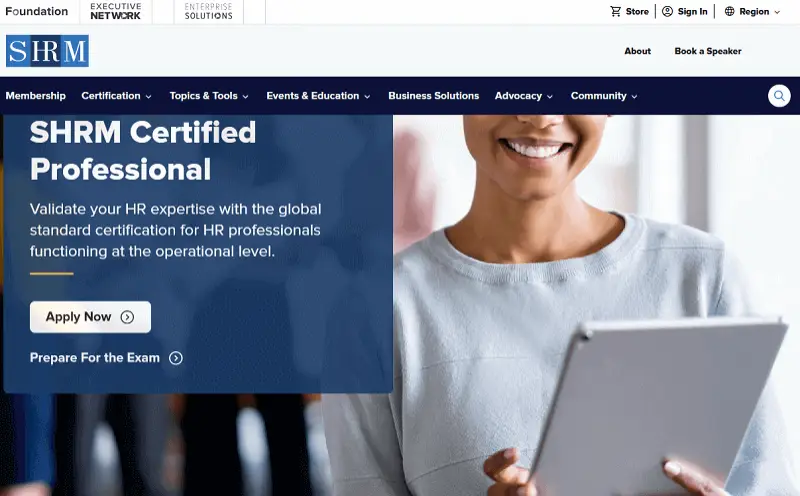
3. Senior Professional in Human Resources (SPHR)
- Core Subjects: Leadership, risk mitigation, workforce planning
- Designed For: Experienced professionals (typically 6+ years)
- Exam Cost: $495–$725
- Requirements: Extensive HR background or a relevant advanced degree
- Institution: HRCI
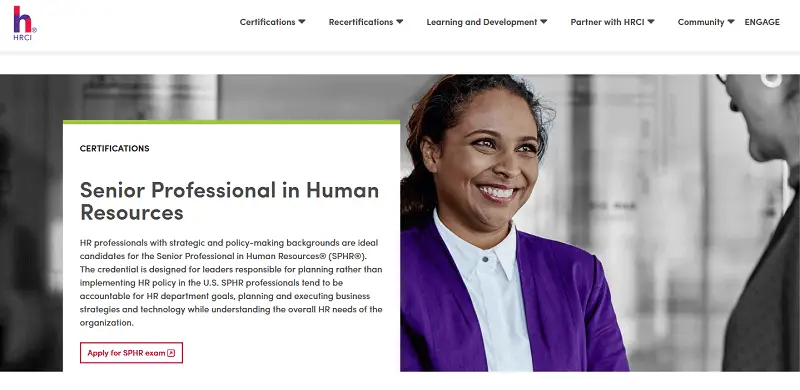
4. SHRM Senior Certified Professional (SHRM-SCP)
- Coverage: Organizational strategy, performance metrics, executive-level decision-making
- Target Audience: Seasoned HRs
- Investment: $400–$500
- Entry Criteria: Open to specialists with leadership responsibilities
- Administered by: SHRM
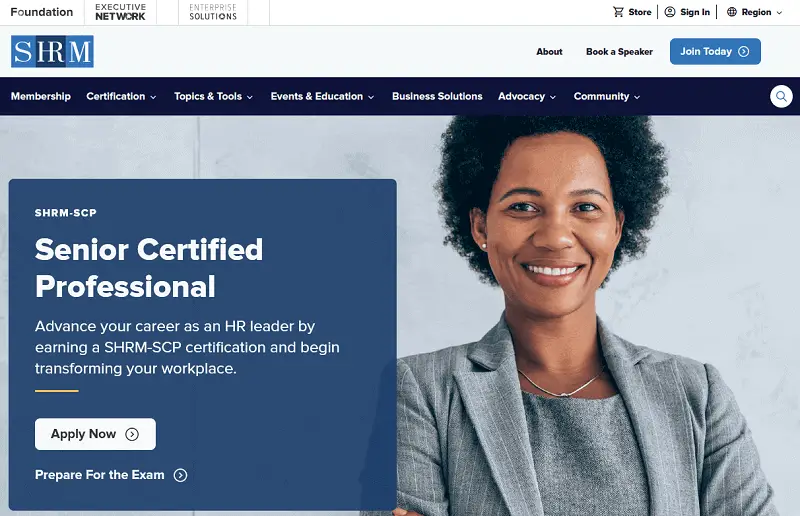
5. Global Professional in Human Resources (GPHR)
- Emphasis: International HR policies, global talent acquisition, compliance
- Best Suited For: Specialists managing global workforce challenges
- Pricing: $495–$725
- Necessary Qualifications: Minimum of two years of experience (or equivalent academic background)
- Available Through: HRCI
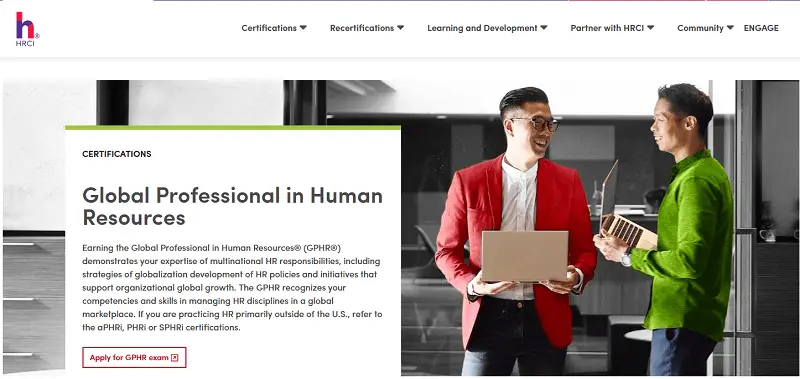
6. Associate Professional in Human Resources (aPHR)
- Topics Covered: Fundamental HR functions, compliance laws, hiring processes
- Intended For: Entry-level practitioners or those transitioning into HR
- Cost Estimate: $300–$400
- Entry Requirements: None
- Certification Body: HRCI
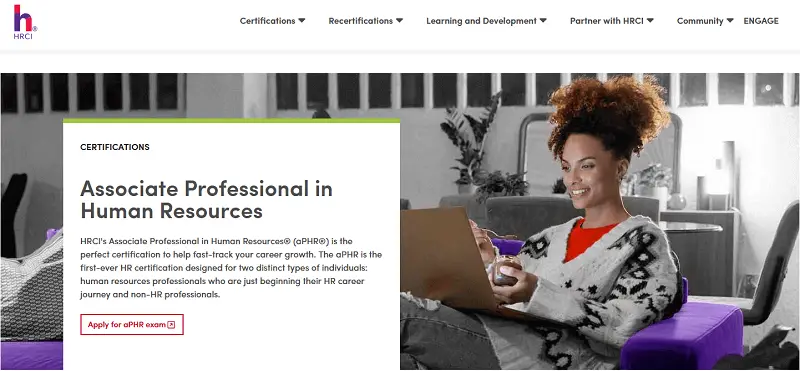
7. Certified Compensation Professional (CCP)
- Key Areas: Pay structures, performance incentives, executive compensation
- Target Candidates: HR focusing on salary and benefits management
- Expense: $1,800–$3,000
- Prerequisites: Open enrollment, no experience required
- Available at: WorldatWork
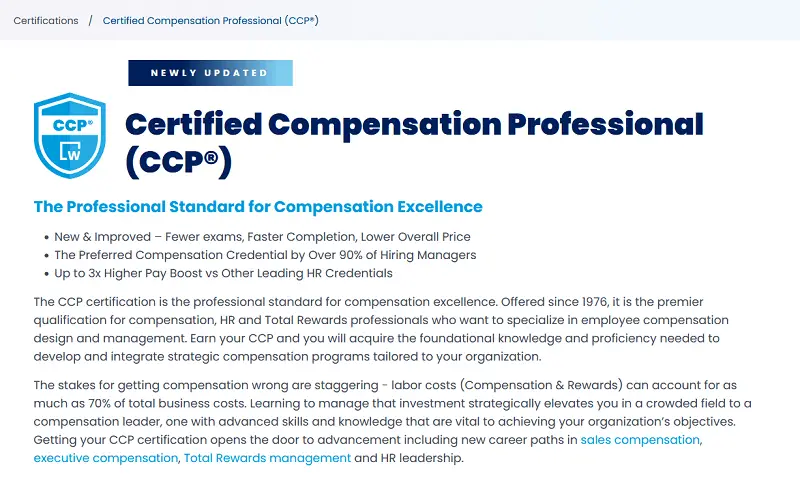
8. Certified Benefits Professional (CBP)
- Primary Focus: Health plans, retirement benefits, total rewards strategy
- Designed For: HR personnel managing employee programs
- Course Fee: $1,800–$3,000
- Entry Conditions: No specific experience needed
- Certification Issued by: WorldatWork
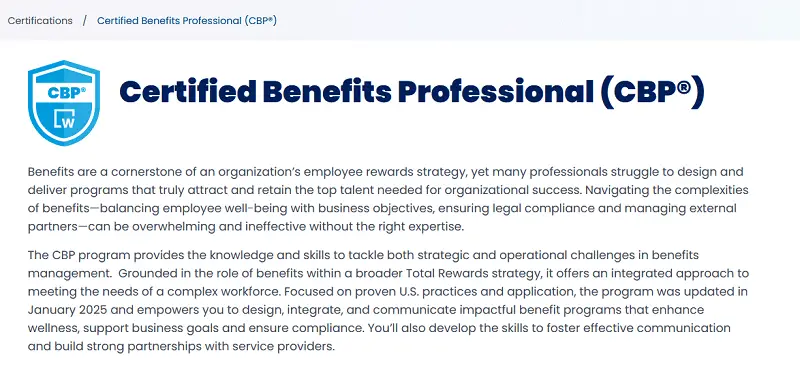
9. Certified Payroll Professional (CPP)
- Learning Objectives: Payroll compliance, tax regulations, wage processing
- Most Suitable For: Payroll specialists and finance-related HR roles
- Cost Range: $440–$725
- Eligibility: Open to applicants without prior certification
- Awarded by: American Payroll Association (APA)
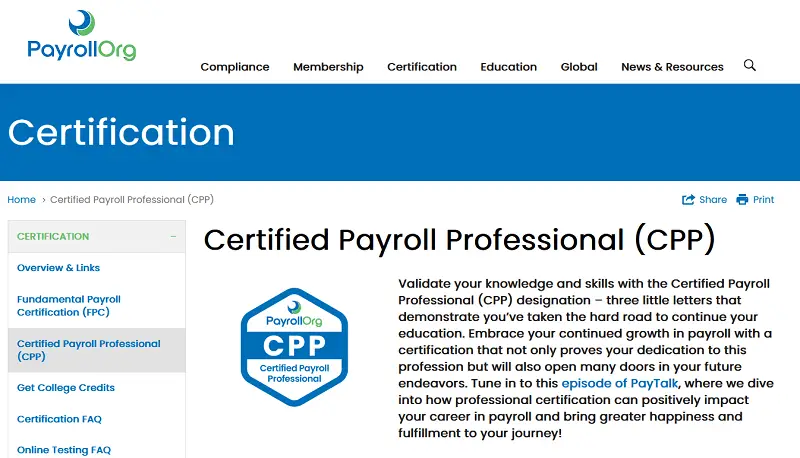
10. Certified Employer Branding & Talent Acquisition Professional (CPEBTA)
- Study Areas: Candidate sourcing, marketing, employer brand development
- Best Fit For: HR professionals in recruitment or employer branding roles
- Registration Cost: $695
- Entry Criteria: No prerequisites
- Offered by: Talent Brand Alliance

11. Certified Professional in Talent Development (CPTD)
- Main Topics: Training design, instructional methods, employee development
- Recommended For: HR specialists overseeing workplace learning programs
- Tuition: $900–$1,500
- Experience Required: Typically 5+ years in learning & development
- Issuing Organization: Association for Talent Development (ATD)
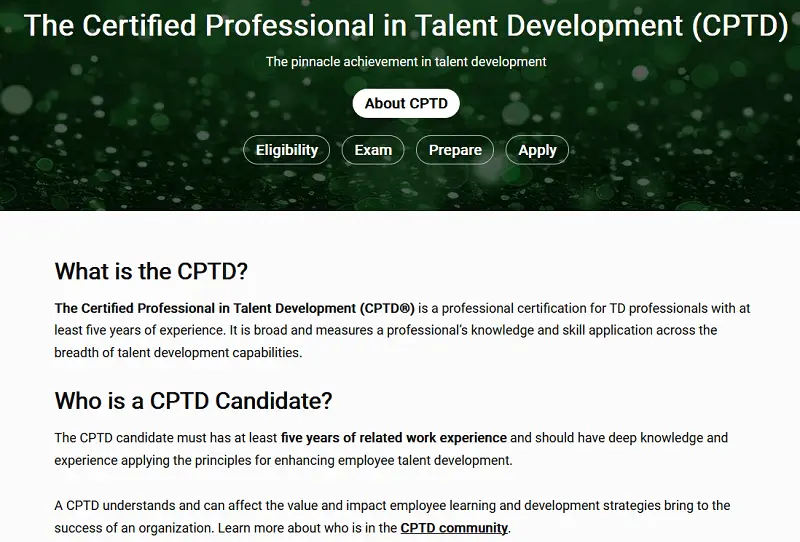
How to get HR certification?
Earning a certificate for human resources requires careful planning and preparation.
- Choose the Right HR License
Different credentials cater to various experience levels and career goals.
Some common options include:
- Entry-Level: aPHR (HRCI), SHRM-CP (SHRM)
- Mid-Career: PHR (HRCI), SHRM-CP (SHRM)
- Senior-Level: SPHR (HRCI), SHRM-SCP (SHRM)
- Specialized: CCP (WorldatWork), CPP (APA), GPHR (HRCI)
- Meet the Eligibility Criteria
Each human resources program has specific prerequisites based on education and work experience.
For example:
- aPHR requires no prior experience.
- PHR needs at least one year of HR work history.
- SPHR is for professionals with 4–6+ years in leadership roles.
- Enroll in a Class
To increase your chances of passing, consider joining an HR credentials prep course.
Training is available through:
- HRCI and SHRM official courses
- Universities
- Online learning platforms like Coursera, Udemy, or LinkedIn
- Study for the Exam
Each testing has a specific structure, covering different domains.
Before you start studying, review:
- The number of questions (typically 100–175)
- Inquiry types (multiple-choice, scenario-based, situational judgment)
- Time limits (usually 2–4 hours)
- Passing score requirements
To stay on track, organize your study sessions.
Here’s a suggested schedule:
| Timeframe | Focus |
|---|---|
| Week 1-2 | Read core HR concepts and exam guidelines |
| Week 3-4 | Take notes on key topics (laws, policies, HR strategies) |
| Week 5-6 | Practice with quizzes and flashcards |
| Week 7-8 | Take full-length practice tests and review weak areas |
| Final Week | Revise, rest, and prepare mentally for exam day |
Benefits of earning HR certificates
Below are key advantages professionals gain from achieving industry-recognized HR credentials.
- Many organizations prefer or require certified professionals for managerial and leadership roles. Certain designations, like GPHR, are valued internationally, creating opportunities beyond local markets.
- Certified specialists frequently command higher salaries. HR licenses can lead to a 10%–25% pay increase due to the added expertise and credibility.
- HR practitioners are regarded as experts in their field, strengthening their reputation within an organization and sphere.
- Human resources certificates often serve as a distinguishing factor, making candidates more appealing to employers.
- Continuous learning ensures recruiters can adapt to advancements and regulatory shifts.
- Holding HR qualifications validate experience, boosting self-assurance when handling responsibilities such as employee relations.
- Certification can open doors beyond traditional HR positions, allowing professionals to explore consulting and advisory services.
Conclusion
A human resources certificate serves as a strong foundation for professional growth, equipping individuals with essential skills to navigate the complexities of workforce management.
With organizations increasingly valuing professionals, obtaining the right HR certification can lead to new career possibilities and greater recognition.
Create your professional Resume in 10 minutes for FREE
Build My Resume






